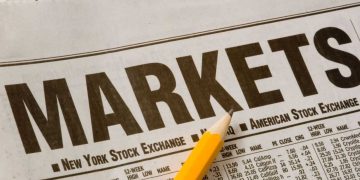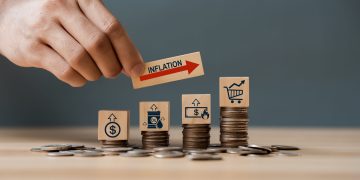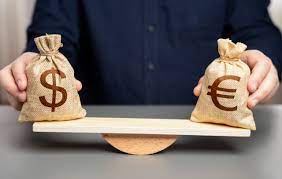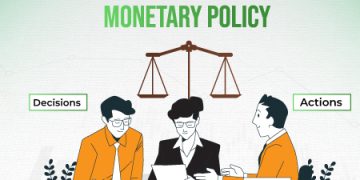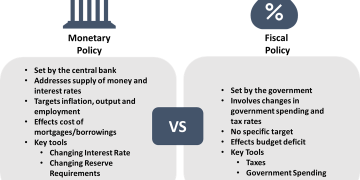1. A Coffeehouse Debate
It’s a rainy Tuesday morning in New York City. Two friends—both seasoned investors—meet at a café near Wall Street.
Michael, a grey-haired veteran with decades in the market, stirs his black coffee slowly. He’s a value investor, the kind who still swears by Benjamin Graham and Warren Buffett. Across from him sits Sarah, younger, armed with a laptop covered in fintech stickers. She’s a growth investor, fluent in software, biotech, and anything ending in “-tech.”
Michael leans forward:
“The market cycle is turning. Rates are peaking, inflation is cooling. This is the time for value. Strong balance sheets, steady dividends—that’s what will carry us.”
Sarah shakes her head with a grin:
“You’re stuck in the past. Innovation doesn’t stop. AI, green energy, biotech—those are the engines of the next bull market. Growth will lead, not value.”
Their debate captures a timeless question: In the next market cycle, should investors favor value or growth?
2. What the Past Can Teach Us (A Short Time Travel)
To answer, let’s rewind the tape of financial history.
- The Dot-Com Bubble (1999–2002): Growth ruled the late 1990s as tech stocks soared. When the bubble burst, value outperformed for nearly a decade, with investors favoring stability.
- Post-2008 Recovery: The Global Financial Crisis punished banks and industrials (classic value plays). In the 2010s, fueled by cheap money, growth giants like Amazon, Apple, and Tesla led an extraordinary rally.
- Pandemic Shock (2020): At first, defensive value stocks like utilities and consumer staples provided safety. But the “work-from-home” era catapulted growth firms—Zoom, Nvidia, and others—to dizzying heights.
- Inflation Era (2022–2023): Rising rates hurt growth stocks with long-term cash flows. Energy, banks, and industrials (value sectors) briefly took the lead.
History doesn’t repeat exactly, but it rhymes. Cycles often swing between value and growth, depending on interest rates, inflation, and investor psychology.
3. Investor Diaries (Snapshots of Mindsets)
Instead of dry definitions, let’s hear the “voices” of different investors.
- The Value Traditionalist:
“I want companies trading below their intrinsic worth. I love dividends, strong cash flows, and boring businesses that quietly compound wealth.” - The Growth Visionary:
“I invest in the future. Profits today don’t matter as much as market share tomorrow. I’m willing to pay for innovation and scalability.” - The Balanced Pragmatist:
“Why not both? Own value for safety and growth for upside. Blend them depending on where the cycle is headed.”
Each perspective is valid. The challenge is figuring out which one the next cycle will reward most.
4. The Mechanics: Why Cycles Favor Different Styles
The tug-of-war between value and growth has clear drivers:
- Interest Rates: Low rates boost growth, since future earnings are discounted less. High rates benefit value, as current cash flows matter more.
- Inflation: Stable or falling inflation helps growth companies. Rising inflation often pushes investors toward value sectors like energy or consumer staples.
- Economic Growth: In expansions, growth thrives. In slowdowns, value defensive stocks can provide shelter.
- Investor Sentiment: Periods of optimism inflate growth stocks; fear or uncertainty strengthens value’s appeal.
Think of the market as a pendulum—it rarely stays on one side forever.

5. Global Perspectives
The value-growth debate isn’t just American.
- United States: Home to the tech giants, the U.S. often tilts toward growth dominance.
- Europe: More mature industries and banks dominate European indices, making it naturally more value-heavy.
- Emerging Markets: A mixed bag—China’s tech sector behaves like growth, while Latin American commodity firms act like value.
Where the global money flows next cycle will depend heavily on macro conditions like currency strength, trade policies, and geopolitical shifts.
6. The Risk Theater (Where Risks Become Characters)
Picture the market as a stage play. The main characters are risks, each pulling investors toward value or growth.
- Inflation the Villain: When inflation enters, growth stocks shiver. Value, with hard assets and pricing power, feels stronger.
- Interest Rate the Judge: Higher rates penalize long-term promises, punishing growth. Lower rates forgive those promises, letting growth shine.
- Innovation the Rebel: Always breaking rules, innovation creates whole new markets—tilting the spotlight back to growth.
- Recession the Trickster: When the economy stumbles, investors run toward the safety of value.
The plot changes depending on which “character” dominates the scene.
7. Two Possible Futures
Let’s look ahead with two possible storylines for the next cycle.
Scenario A: Value Resurgence
- Interest rates stay elevated for longer.
- Inflation remains sticky.
- Energy, banks, and industrials deliver steady returns.
- Growth companies struggle with funding costs and slower demand.
Scenario B: Growth Renaissance
- Inflation cools rapidly, rates fall.
- AI, biotech, green energy, and space tech surge.
- Investors chase innovation, pushing valuations skyward.
- Value sectors provide stability but lag behind.
Reality may fall somewhere in between—but cycles often reward one style disproportionately for years.
8. Practical Takeaways for Investors
So what should investors actually do?
- Stay Flexible: Don’t anchor to one style. Let the data guide allocations.
- Watch Macro Trends: Inflation, rates, and central bank policy often decide which style wins.
- Diversify Globally: Value in Europe may complement growth in the U.S.
- Blend Styles: Consider “core-satellite” portfolios—core in value, satellite in growth opportunities.
- Look Beyond Labels: Some companies blend both—think Apple (a growth innovator but with steady cash flows).
9. A Closing Reflection
Back in the café, Michael and Sarah finish their debate. Neither convinces the other fully, but both agree on one truth: cycles change, and markets reward adaptability.
Michael lifts his cup:
“Maybe value will lead this time.”
Sarah smiles:
“Or maybe growth. Either way, smart investors will be ready.”
The rain outside eases. For investors everywhere, the question remains: in the next market cycle, where should you look—value, growth, or both?

